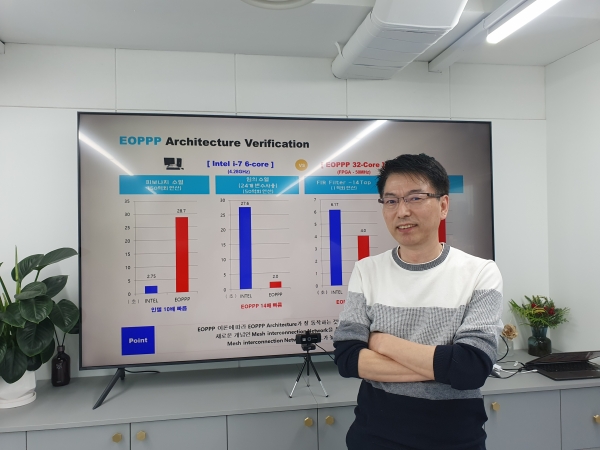EOPPP tech could offer turning point for PIM, CEO says

South Korean chip startup Morumi is aiming to develop a CPU that can process data in complete parallel.
Theoretically, this means the processor can infinitely increase the number of cores, increasing its performance substantially.
Morumi CEO JB Lee told TheElec said this makes the company a “first mover” and is aiming to publish a paper on Science verifying the technology by mid-2023.
The company will also develop its 1.0 version of a compiler within the year, the CEO explained.
Lee founded the company in 2018 with the aim to launch telecommunication chips.
It is now developing the CPU with the every one period parallel processor (EOPPP) technology, or enabling multi-core data flow.
Current CPUs have cores that receive the instruction input and process data sequentially.
The CPU repeats these “periods” to collect, analyze and save data, a process known as sequential processing.
This is why most chipmakers are aiming to increase the speed of this process.
Using multiple cores allows this process to become faster but most data cannot be processed in parallel __ only around 5% of data can be processed this way.
That is why CPUs have main cores and even if they have more than one core performance cannot reach 2x.
EOPPP distributes data to each core before the processing begins as a way to overcome this.
The pre-saved data are processed at once and the processed data are moved and saved in parallel on a mesh network. Using this saved result in the next period allows the sequential processing of this parallel data.
CEO JB Lee claimed the existing CPU can only handle 5 instructions at most even with multiple cores but Morumi’s CPU will be able to handle 10,000 instructions with 10,000 cores.
Lee said the company had a 32-core FPGA sample that showed 10x performance in certain areas to existing cores.
Morumi filed its own patents in architecture and other technologies related to EOPPP. Once the compiler is developed, the CPU will be able to run programs.
Lee said EOPPP could also offer a turning point for technologies such as processing-in-memory as it is currently limited by the number of instructions the CPU can handle.

